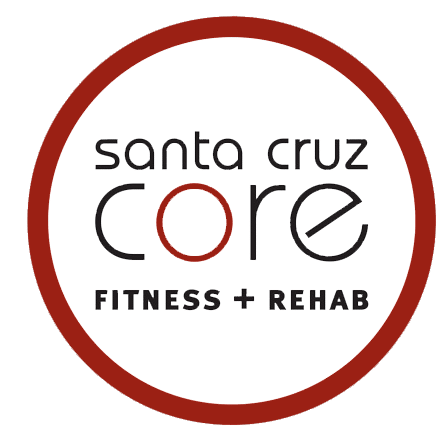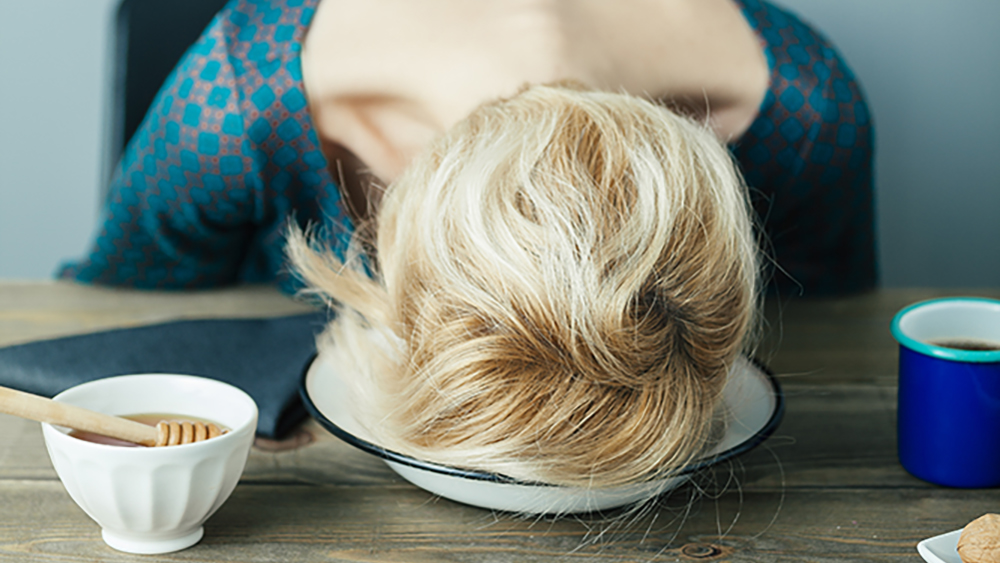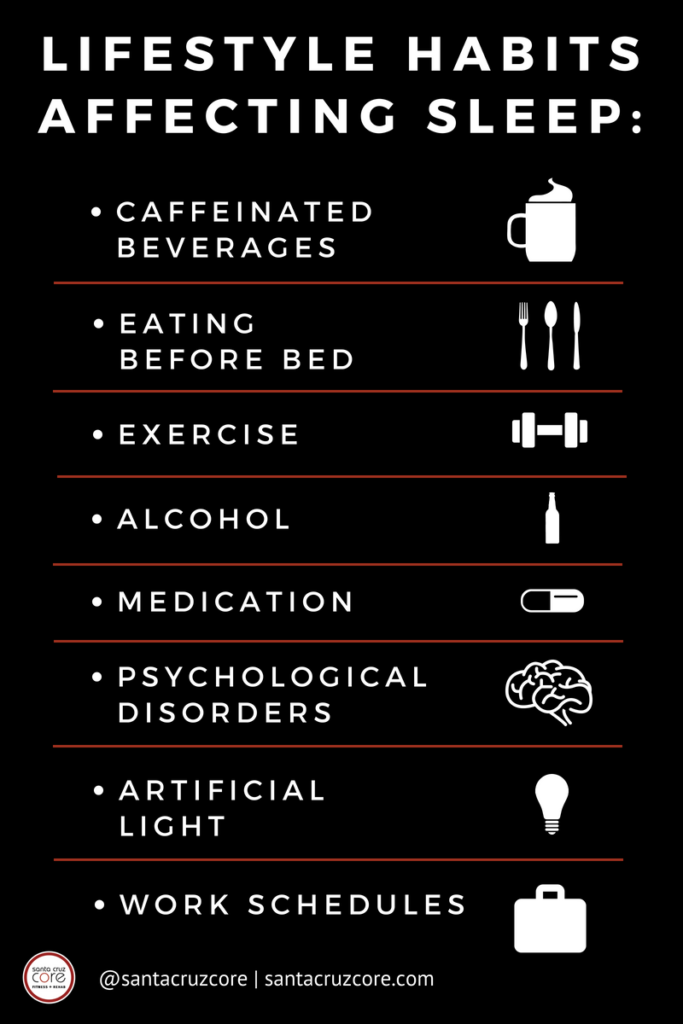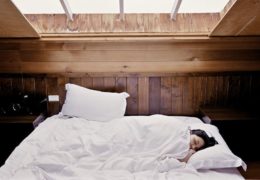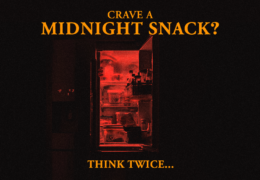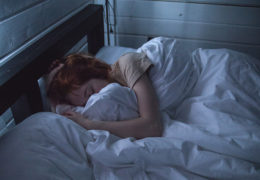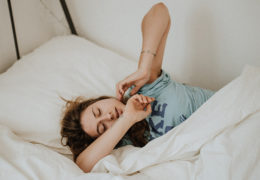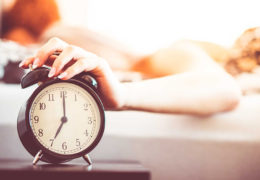Sleep disorders are very common and not many individuals know how to combat the adverse effects of poor sleep, much less how to correct it.
Sleep disorders can range from the inability to begin or maintain sleep to the inability to remain alert during the day hours or maintain wakefulness. By becoming more informed on sleep science, individuals can learn to appreciate the importance of good sleep and find ways to improve sleep quality.
We begin by learning about the brain chemicals (known as neurotransmitters) of wakefulness and how these affect sleep. Once that is out of the way, we can discuss how levels of these ‘neurotransmitters’ change throughout the day in response to stimuli like daylight, exercise, caffeine, and other substances. By understanding this stimuli-neurotransmitter relationship it is possible to assess the effects of lifestyle on sleep and the many aspects that define it.
Neurotransmitters of Wakefulness:
Active brain chemicals partly define what we know as wakefulness. Common neurotransmitters of wakefulness include histamine, norepinephrine (adrenaline), neuro-serotonin, acetylcholine, orexin/hypocretin, and dopamine (1). While many more neurotransmitters are involved in the regulation of sleep (like glutamate and cortisol), these are the most associated with the wakeful state. A side-effect of medications which reduce the levels of any of these neurotransmitters or interferes with their activity will likely result in drowsiness and even sleep.
Antihistamines, commonly used for allergy relief, show how wakefulness is disturbed by disrupting wake-chemicals. A common side-effect of antihistamines is indeed drowsiness. Antidopaminergics (a type of antipsychotic) are also a good example, these interfere with dopamine levels in the brain thereby affecting the wakeful state.
Ever wondered how non-drowsy antihistamines work? If the antihistamine can’t get to the brain, then it will have no effect on the wakeful state. By engineering antihistamines that cannot penetrate the blood-brain barrier, the drowsy side-effects are avoidable. The blood-brain barrier, as the name entails, is a barrier between the brain and blood supply that filters out unwanted substances.
Neurotransmitters of Sleep:
Neurotransmitters associated with the wakeful state are by no means exclusive to wakefulness. Acetylcholine, norepinephrine, and serotonin, for example, are all active brain chemicals during sleep. The presence of selective neurotransmitters during different sleep stages allows us to better understand that stage to further study it.
Acetylcholine and glutamate, for example, are very active during REM (Rapid-Eye-Movement) sleep. REM sleep is a particularly active type of sleep. The presence of wake-chemicals partly explains this.
There is an important neurotransmitter (more or less) exclusive to sleep, however, and that is melatonin. Melatonin is a hormone whose presence helps induce and maintain sleep. Melatonin levels naturally rise at night and drop in the morning. This is because melatonin production is inhibited by light and promoted by its absence. Melatonin-generating pathways help draw a link between the individual and the environment.
Neurochemistry and LifeStyle:
Lifestyle greatly influences sleep. Many lifestyle habits can contribute to a sleep disorder as well as help correct it. Here are a few lifestyle habits, substances, and conditions which have an influence on sleep:
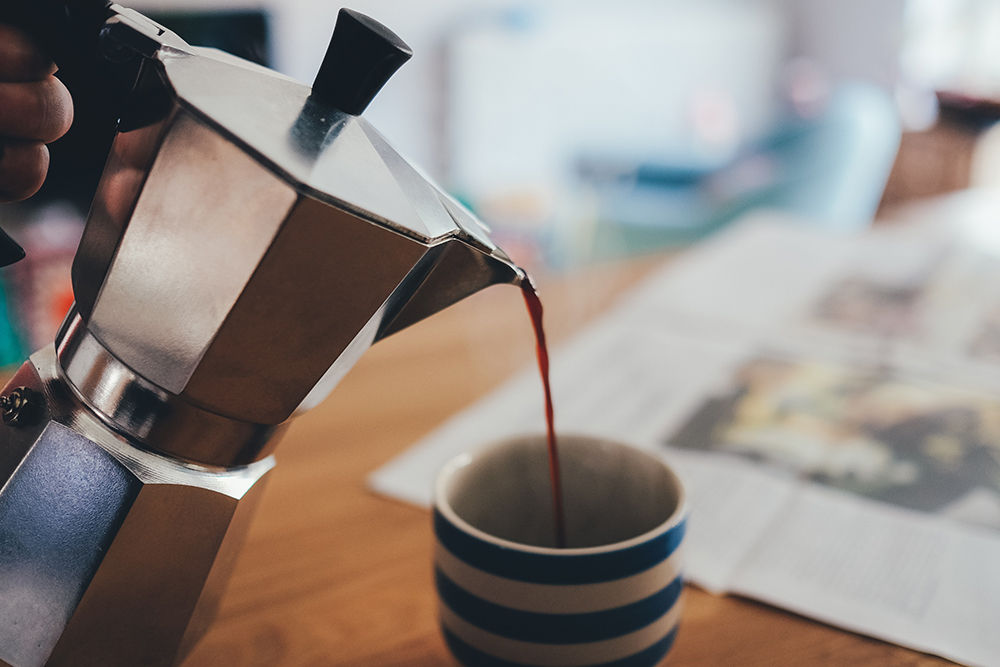
Drinking Caffeinated Beverages:
Caffeine promotes alertness and postpones sleep partly due to its effect on wake-chemicals. It interferes with dopamine absorption and leads to a build-up that will take longer to process thereby increasing alertness. Another effect of caffeine has to deal with adenosine, which promotes sleep by interfering with the activity of wake-chemicals. Caffeine can bind to adenosine receptors, blocking the adenosine from binding itself and delaying its sleep-promoting effects.
Consuming caffeine early in the morning can promote wakefulness, contribute to a productive day and promote better sleep at night. When consumed at night, however, caffeine will interfere with natural sleep-promoting pathways. If consumed habitually during late hours (or with a sleep disorder present), it can certainly lead (or contribute) to sleep problems.
On the brighter side, caffeine also helps improve memory consolidation (2). This doesn’t mean drink more or less, rather take time frame into account when doing so. If unsure whether caffeine is having a negative or positive effect on health and sleep, a nutrition council can certainly help.
Eating Too Much Before Bed:
This habit can aggravate already existing sleep disorders via energetic pathways. When one eats until one is “full,” the full stomach will help induce sleep. This type of sleep, however, is difficult to maintain once the body finishes digesting the food.
When food is in the stomach, the body redirects much of its blood flow to the digestive tract where it is needed. This means less blood (oxygen delivery) to other areas like the limbs and brain, one begins to feel like laying down and taking a nap. Once the process of the digestion has reached a certain point, the energy levels and blood delivery to other body parts begin to rise. This means more oxygen to the brain and limbs, a rise in body temperature, and a rise in energy levels. The individual is now more likely to wake up and will have a harder time returning to sleep.
Food has a tremendous influence on sleep and the entire organism. When diet and lifestyle synchronize in a positive way, food can work as therapy to improve sleep at night and be more alert during the day. Additionally, certain foods can help promote sleep when eaten a few hours before bed due to their nutrient composition. Once again nutrition counseling can help determine a good diet plan that complements an individual’s schedule and helps promote good sleep.
Exercise:
Exercise’s effects on sleep are generally positive. It offers benefits pertaining to a better circulatory function, promoting both brain and heart health.
Exercise in the morning and during daylight hours helps balance energy levels and promote better sleep. Most individuals will find that establishing a regular exercise routine will improve sleep quality. Exercise before bed, however, can be a little controversial as far as sleep goes. Many find that it doesn’t matter when they exercise, and their sleep always seems to benefit from the workout.
Exercise before bed, however, can delay sleep onset and even pose a problem for some individuals. Exercise stimulates the release of adrenaline to promote alertness and increase blood flow to support an exercise bout. Body temperature also rises, which opposes the natural decline in body temperature that helps put us to sleep.
Exercising before bed isn’t a problem for everyone, in fact, many find it beneficial. It is the presence of an already existing sleep disorder or an otherwise disruptive lifestyle that can be a bad combination with nighttime exercise. If sleep onset is a problem, then one should consider exercising earlier in the day and not before bed.
Alcohol:
Alcohol can have adverse effects on sleep. Anyone who has tried an alcoholic drink can describe the somewhat relaxing effects it has on the body. Drink too much and one will find themselves struggling to keep coordination and falling asleep (“passing out”). Sleep induced by alcohol is hard to maintain and will likely result in disruptive episodes of wakefulness.
These effects of alcohol are explained by its effect on neurotransmitters helping to regulate sleep and motor function; melatonin and Gamma-aminobutyric acid (GABA). Melatonin levels rise in response to alcohol and one begins to feel sleepy. GABA is a neurotransmitter that is inhibitory by nature- that is, stimulating GABA receptors means the inhibition of alertness to some extent (3). GABA also plays a big role in motor control and in the coordination of movement, stimulating GABA receptors, therefore, impairs both.
When one falls asleep due to alcohol consumption, the sedative effect is only temporary. While one is asleep, the body is working hard to metabolize and reduce alcohol levels in circulation. Once the majority of ethanol has been metabolized, there is a reboot in the alert-generating pathways of the brain and sleep can be disrupted.
If sleep is already a problem alcohol will only aggravate it. It is therefore recommended limiting alcohol consumption during late hours if sleep is already a problem. For those with healthy sleeping schedules who only drink on occasion, alcohol will still have the same effects but other sleep-regulating mechanisms are more likely to compensate for a disruption in sleep. Chronic alcohol consumption, however, will not only affect sleep but other body systems like the liver and heart.
Medications:
Some medications which target neurotransmitters of sleep or wakefulness will have an adverse effect on either. Examples include- anticholinergics (oppose acetylcholine), antidopaminergics (oppose dopamine), antihistamines (oppose histamine), and anti-orexins (oppose orexin). Due to the multi-effect of many of the neurotransmitters of wakefulness, they are often targeted for the treatment of other conditions.
Anticholinergic drugs, for example, may be prescribed for the treatment of Parkinson’s Disease, as antidepressants, as antihistamines, and for problems related to muscle spasms that lead to nausea. These type of medications come in many forms and many names. It is important to communicate sleep any related side-effects with the drug-prescribing physician to see what can be done about it.
Psychological Disorders:
Some psychological disorders link to impaired sleep. Some examples include major depressive disorder (MDD), bipolar disorder, anxiety, and even attention deficit disorder (ADHD) (4). In cases like these, it is recommended to undergo lifestyle changes, helping promote good sleep under the guidance of a qualified professional. This field of science is very delicate and should always be assessed by only those qualified.
Artificial Light:
Artificial light, like daylight, has an effect of inhibiting melatonin production. The use of electronic devices at night such as cell phones, computers, tablets, and TVs can all inhibit melatonin production. Less melatonin means that the “sleepy” most of us get at night will have a lesser effect on sleep onset. People who frequently use electronic devices that emit artificial light are more likely to have sleep onset problems.
Work Schedules:
Night shifts and highly demanding work schedules have a great influence on sleep through behavior. A person working at night is probably exposed to artificial light. Artificial lights then affect melatonin levels. Additionally, such individuals frequent the consumption of caffeinated drinks as a means to stay awake. Caffeine as discussed earlier, has an effect on both dopamine and adenosine, thereby delaying sleep and promoting alertness.
Over time, the chronic stimuli exposure due to these type of behaviors can disrupt the circadian rhythm, which is a system that helps regulate sleep in relation to the environment and physiology (like heart rate, and body temperature). A disruption of this kind can result in an individual waking up less rested and with low energy levels.
Many people all over the world have trouble falling or staying asleep, or even suffer from sleep disorders. Don’t fight through it alone—seek help from a professional! At CORE, we have chiropractors, osteopaths, and massage therapists that can help relax your muscles, provide structural re-alignment, and get rid of pain. Exercise is also a great tool to help you fall asleep faster and easier; if you think that is the case for you, stop by for a Personal Training session or a Semi-Private Training session!
References:
Zak, Rochelle. “Sleep Disorders.” UCTV – University of California Television, 8 Feb. 2016, uctv.tv/shows/Sleep-Disorders-30139.
Borata, Daniel, et al. “Post-Study Caffeine Administration Enhances Memory Consolidation in Humans .” Nature.com, Nature Neuroscience, 12 Jan. 2014, www.bing.com/cr IG=28B9864FA19E4BC18F0DEC347DFEBF72&CID=1D15962D56F269340D629DDD575D6839&rd=1&h=EewF2S_rbdjodB_CxBziYiz7fYtHYbEu3IoScqIFTjE&v=1&r=http%3a%2f%2fwww.nature.com%2fneuro%2fjournal%2fv17%2fn2%2fnn.3623%2fmetrics%2fgoogleplus&p=DevEx.LB.1,5583.1.
Davies, M. “The Role of GABAA Receptors in Mediating the Effects of Alcohol in the Central Nervous System.” Health Communication, Oxford PharmaGenesis, Oxford, 28 Apr. 2003, europepmc.org/articles/PMC165791.
Harvard Health Publishing. “Sleep and Mental Health – Harvard Health.” Harvard Health Blog, July 2009, www.health.harvard.edu/newsletter_article/sleep-and-mental-health.
